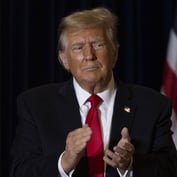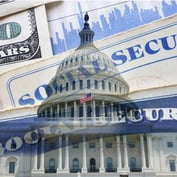(Bloomberg) — The U.S. government has grounds to demand that American International Group Inc. pay any significant damages should Maurice “Hank” Greenberg win his $25 billion claim that federal officials shortchanged investors in the 2008 bailout of the insurer.
Greenberg and other investors who sued the government initially estimated damages at $25 billion. Later calculations put the figure closer to $40 billion. The smaller figure would be the equivalent of more than the twice insurer’s $9 billion in net profit last year.
During any U.S. attempt to establish a legal right to the money based on an indemnity promise in AIG’s bailout agreement, taxpayers would probably have to foot the bill initially. Damages would be paid out of the so-called Judgment Fund, which is administered by the Department of Treasury.
“It’s this bottomless financial pit that the government dips into when it has to pay a judgment,” said John Echeverria, a professor at the Vermont School of Law.
AIG isn’t a party to the class-action suit, which was filed by Greenberg’s Starr International Co. on behalf of him and about 275,000 other AIG investors. As a condition of an $85 billion bailout loan, AIG’s management agreed to pay damages resulting from litigation tied to the rescue, according to U.S. court filings.
‘Financially Prudent’
“If I was the government, I would absolutely look to AIG and to anyone else to pick up some of the tab,” said David Zaring, a professor of legal studies and business ethics at the University of Pennsylvania’s Wharton School. “That would just be financially prudent.”
Still, pursuing AIG for reimbursement of damages would create the awkward and legally unfavorable circumstance of putting the arm on someone else for government conduct, Zaring said.
“It’s the government’s own actions that are being sued about,” he said.
AIG acknowledges in its most recent quarterly report that it might have to pay the Greenberg damages: “A determination that the United States is liable for damages, together with a determination that AIG is obligated to indemnify the United States for any such damages, could have a material adverse effect on our business,” the company said in a filing.
In trying to collect a large judgment from AIG, the government would be harming a company it said it had to save in 2008 to prevent catastrophic damage to the U.S. economy.
Government’s Choice
Stephen Aiello, a spokesman for Starr International, declined to comment directly on who should pay damages. “This is up to the government to decide how they want to handle this, if they lose the case,” Aiello said.
Nicole Navas, a spokeswoman for the Justice Department, declined to comment on how the government would respond to an adverse judgment. Matt Gallagher, an spokesman for New York- based AIG, declined to comment on the trial.
If the U.S. loses at trial, it may have a hard time collecting from what was once the world’s largest insurer. U.S. Court of Federal Claims Judge Thomas Wheeler, who is hearing the case in Washington without a jury, said in a pre-trial ruling that Starr had raised “legitimate questions about the viability” of government defenses, including the indemnity clause.
Wheeler rejected a government motion to strike the defenses as invalid, saying he wanted to hear more about them at trial. Starr argued the clause was invalid because the bailout agreement that contained it was illegally imposed on AIG.








 November 14, 2014 at 05:57 AM
November 14, 2014 at 05:57 AM










